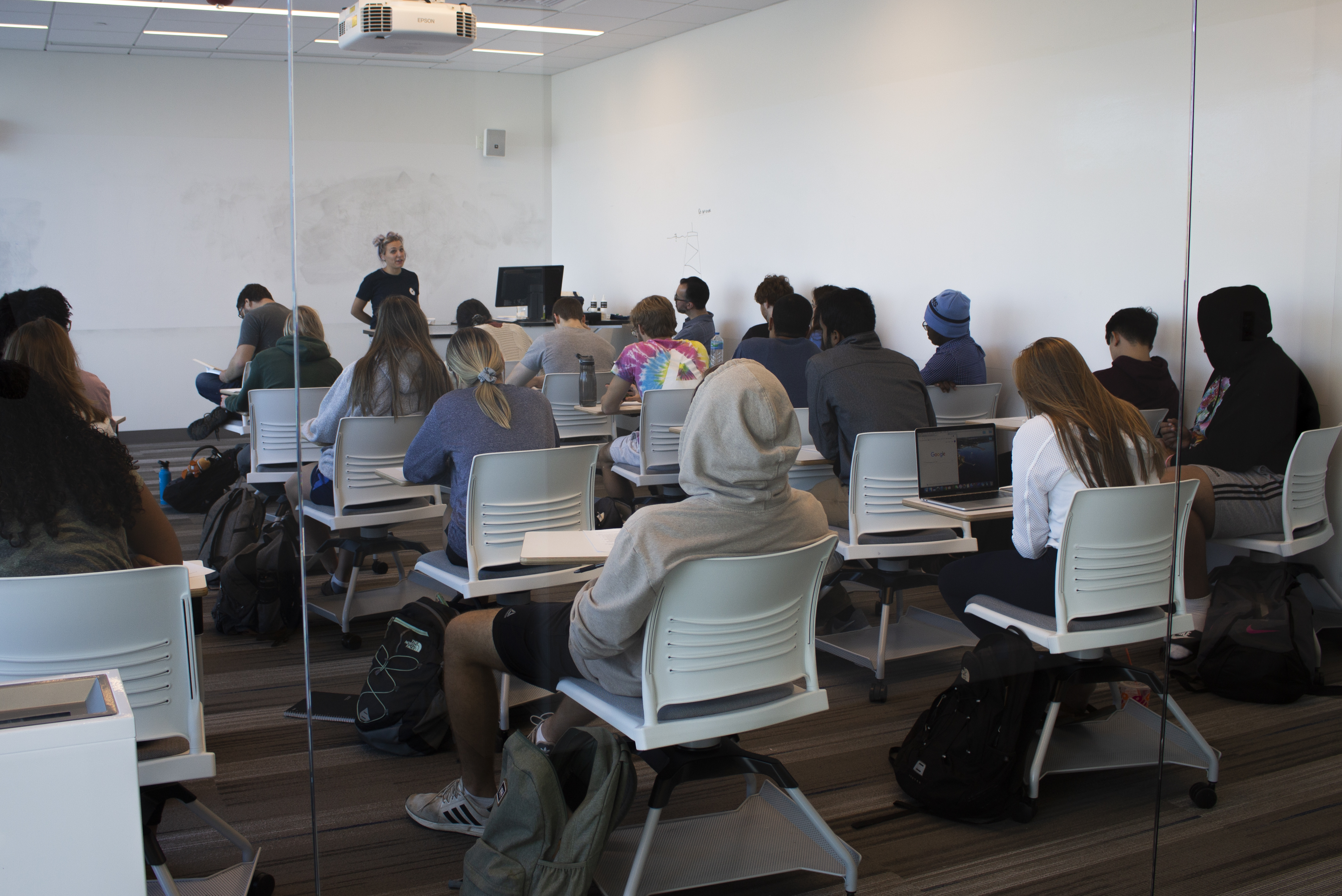Along with their tuition fee, many engineering students also have to pay class fees. Photo by Sarah Michaud.
Certain departments require additional fees in order to fund hands-on learning
Some majors at the University of Rhode Island require students to pay a program fee and course fees in addition to their tuition, which has led to some students asking ‘why?’
According to the Tuition and Fees information provided on the URI website, specific majors require students to pay the fees. These majors include engineering, nursing, pharmaceutical sciences, music and graduate physical therapy.
For these programs, students must pay a program fee in addition to their tuition. Additionally, a course fee may be charged for certain undergraduate and graduate courses based on the tier that they fall under. Per course, Tier I fees are $25, Tier II fees are $55 and Tier III fees are $75.
Aside from the tier that the classes fall under, for full-time undergraduate engineering students, the program fee is $551 per semester, or $46 per credit if attending part-time.
Undergraduate pharmaceutical sciences students pay a program fee of $1,375 per semester beginning in their third year and Pharm.D students pay a program fee of $3,250 per semester beginning in their third year. Additionally, graduate physical therapy students pay a program fee of $1,800 per semester.
Undergraduate nursing students pay a program fee of $850 if attending full-time, or $71 per credit if attending part-time, which is added into their second year tuition dues. Additionally, beginning in their second year, nursing students must purchase authorized uniforms and nursing equipment, which costs approximately $300.
Along with health sciences and engineering majors, students who are taking applied music courses are charged an additional fee of $400 for a one credit course and $800 for courses offering two, three, four or six credits. These applied music courses fall under MUS 110, 210, 310, 410 and 510.
Assistant Dean of the College of Engineering, Jared Abdirkin, said that there can be different fee structures attached to individual classes, especially for engineering students, due to the unique nature of the program.
“Uniquely to engineering, beyond the lecture classes students take, there are some laboratory classes and hands on experience and things, so we have technician positions that then support specifically each of our different programs and those technician positions need to be funded,” Abdirkin said. “We need to find a way to do that because it’s above and beyond what the tuition would be able to help us do just because of the uniqueness of the program.”
Abdurkin said that while some majors are more lecture based and do not require such fees. However, for the other majors such as engineering, an additional fee is needed to help give students the educational experiences that they need and be able to have the right person to be able to do that.
“Our students need the equipment and the lab and things and that just takes a little more cost but then also the right kind of technical personnel,” Abdirkin said.

